Short Haired German Shepherd Puppies: A Guide To These Beautiful Dogs
The short haired German shepherd is a variation of the breed with a shorter, sleeker coat than the standard German shepherd dog. While most German shepherds have longer fur, the short haired variety has shorter fur over a dense undercoat. Short haired German shepherd puppies have a distinctive appearance but share the intelligence and versatility of any German shepherd. Here are 10 key facts about these interesting pups:
Their Origins
Short haired German shepherds originated from breeding the traditional German shepherd with dogs that carry the recessive gene for short fur. By selectively breeding dogs with this recessive trait, breeders were able to produce German shepherd puppies with the shorter coat. They are recognized as purebred by kennel clubs.
Their Shorter Coat
As the name implies, short haired German shepherds have shorter fur covering their dense undercoat. Their hair is approximately 1-2 inches long over most of the body and may be slightly longer around the neck. The coat lies flatter and closer to the body than the coat of a standard German shepherd.
They Shed Less Than Standard German Shepherds
Due to the shorter length of fur, short haired German shepherds typically don’t shed as heavily as their longer haired counterparts. Their shorter coats require less frequent brushing to keep loose hair under control. Vacuuming is needed less often as well.
They are Well-Suited for Warm Climates
The shorter fur of the short haired German shepherd means they are more heat tolerant and adaptable to warm climates than German shepherds with longer coats. Their coats still provide protection from the elements but don’t cause them to overheat as quickly in high temperatures.
They Have the Same German Shepherd Temperament
Aside from the coat differences, short haired German shepherd puppies have the same temperament as any other well-bred German shepherd. They are self-assured, loyal, highly intelligent and bond closely with their family. With proper training and socialization, they make excellent working, sport and companion dogs.
They Need Just as Much Exercise
Don’t think that just because of the shorter coat, short haired German shepherds require less exercise. They still need at least 30-60 minutes of vigorous activity every day to prevent boredom and destructive behavior. Fetch, jogging, agility training and hiking are great outlets for their energy.
They Excel at Dog Sports and Work
The athleticism, trainability and protective instincts of the German shepherd make them a top choice for many types of work. Short haired German shepherds possess these same qualities that allow them to excel at dog sports, as police dogs, service dogs and search and rescue dogs among other roles.
Their Grooming Needs Are Lower
Short haired German shepherds only need occasional brushing to keep their coats looking sharp. During shedding season or times of heavier shedding, more frequent brushing may be needed. Their shorter coats also make bathing and drying them faster and easier. Overall, grooming needs are less than for the standard German shepherd.
They Prone to the Same Health Issues
Like all German shepherds, short haired German shepherds are prone to health conditions such as hip and elbow dysplasia, degenerative myelopathy, and digestive issues. Reputable breeders will test breeding dogs to reduce chances of these issues. Always ask for proof of health testing on parents.
They Need Early Socialization and Training
Proper socialization and training is crucial for any German shepherd to be a well-adjusted companion. Short haired German shepherd puppies should be socialized to new sights, sounds, people and animals as early as 7-8 weeks old. Obedience training provides mental stimulation and reinforces the bonding between dog and owner.
The Unique Short Haired German Shepherd
With their shorter coats, excellent working ability, trainability and loyalty, short haired German shepherds are a great alternative to the standard long haired variety. Their shorter coats make them well-suited for warm areas. When properly trained and exercised, these intelligent, protective pups make wonderful family dogs and working companions.
What is a BLUE GERMAN SHEPHERD?
The blue German shepherd is a rare color variation of the standard German shepherd dog breed. While most German shepherds have the classic black and tan coat, the blue German shepherd has a gorgeous gray or silver-blue coat. Blue German shepherd puppies are just as adorable and intelligent as their more common black and tan counterparts. Here are the top 10 things you should know about these unique pups:
Their Origins
The blue coat color in German shepherds originated from a recessive gene. Breeders started intentionally breeding dogs with the recessive blue gene in the 1970s and 80s to produce more blue-coated German shepherd puppies. While they are not as common as the standard black and tan German shepherd, blue German shepherds are recognized as purebreds by major kennel clubs.
Their Beautiful and Unique Coat
The blue or gray coat is what makes the blue German shepherd stand out. Their fur can range from a light silver-blue to a deeper slate gray. While the coat is mostly a solid blue or gray, they may have some black hairs mixed in or a small amount of tan markings. Their striking blue coat makes them eye-catching dogs.
They Have the Same German Shepherd Temperament
Aside from their coat color, blue German shepherd puppies have the same temperament and personality traits as any other well-bred German shepherd. They are intelligent, loyal, protective and eager to please their owners. Proper socialization and training are still essential for raising a calm, well-mannered blue German shepherd.
They Need Daily Exercise
Like all German shepherds, blue German shepherd puppies grow into active adult dogs with lots of energy. They need at least 30-60 minutes of exercise every day. Long walks, play time in the yard, or jogging with their owner are great ways to keep them fit and stimulated. German shepherds also enjoy activities like agility, obedience training or participating in dog sports.
They are Protective of their Owners
With good socialization and training, the blue German shepherd’s natural protectiveness and loyalty make them excellent guard dogs and companions. They form strong bonds with their owners. Due to their suspicious nature toward strangers and their large size, early obedience training and exposure to a variety of people, animals and situations is essential.
They are Intelligent and Eager to Learn
German shepherds are renowned for being highly intelligent, a trait the blue color variation shares. Blue German shepherd puppies are fast learners and are motivated to train when positive reinforcement is used. Advanced obedience, trick training or dog sports provide great mental stimulation for these bright pups.
They Need Proper Health Testing
Reputable blue German shepherd breeders will do health testing on breeding dogs to reduce the chances of inherited diseases. Hip and elbow dysplasia, eye problems and degenerative myelopathy sometimes occur in German shepherds. Testing allows breeders to selectively breed the healthiest dogs. Ask for proof of health testing before getting a blue German shepherd puppy.
They Have Sensitive Stomachs
German shepherds are prone to digestive issues like bloat, food sensitivities and diarrhea. Blue German shepherds often have particularly sensitive stomachs. Feed them a high-quality diet formulated for large breeds and avoid overfeeding. Limit exercise right before and after meals as well. Talk to your vet if your pup has frequent gastrointestinal problems.
They Shed Year-Round
The blue German shepherd has a medium-length double coat that sheds moderately to heavily all year. Regular brushing helps keep loose hair under control, especially during heavy shedding seasons. Some blue German shepherds may have slightly wavy fur that is thicker around the neck. Be prepared to vacuum and brush your pup frequently.
They Need Proper Socialization
Early socialization helps any German shepherd puppy grow into a confident, stable adult dog. Introduce your blue German shepherd puppy to new places, people, animals, and experiences starting at 7-8 weeks old. Well-socialized German shepherds are friendly toward strangers and less likely to develop behavioral issues. Sign puppy up for obedience classes for more socialization opportunities.
The Unique Blue German Shepherd
With their regal blue coats, intelligence, and loyal personalities, blue German shepherd puppies make wonderful family companions and working dogs. These rare beauties stand out from the crowd but have all the same desirable traits as the classic black and tan German shepherd. If properly trained and socialized, the blue German shepherd grows into an impressive and dedicated dog that draws admiration wherever it goes.
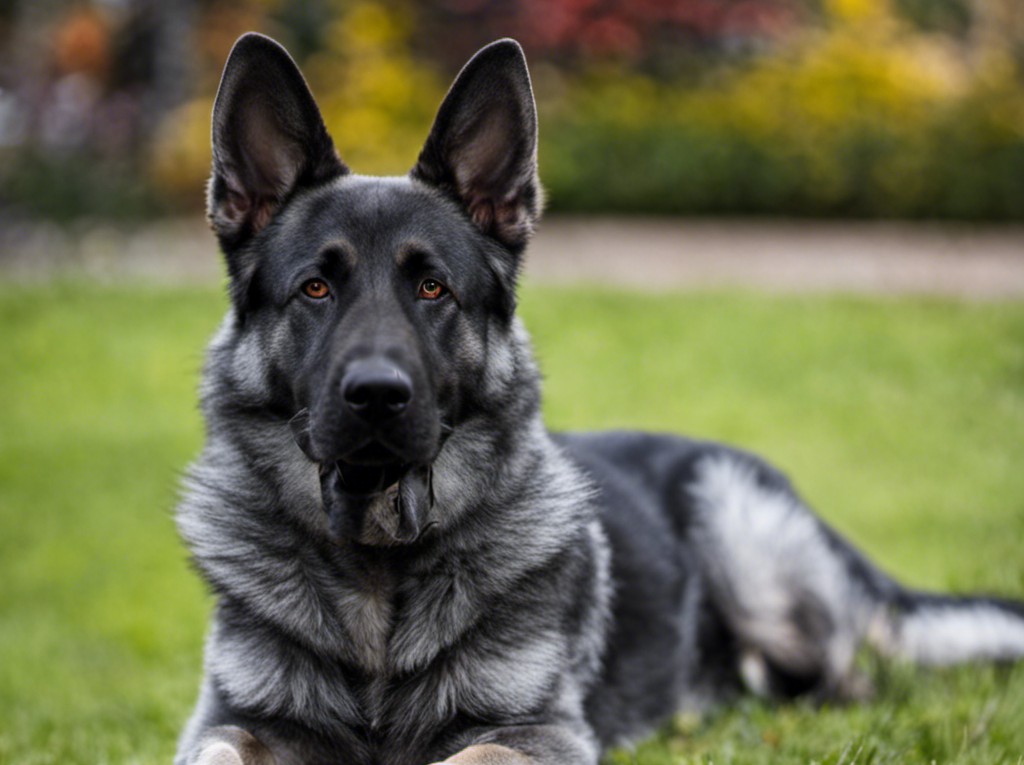


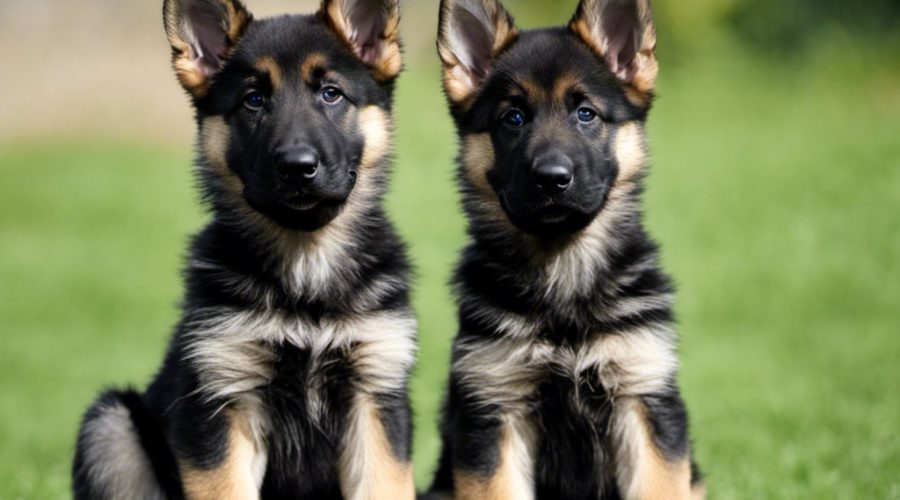
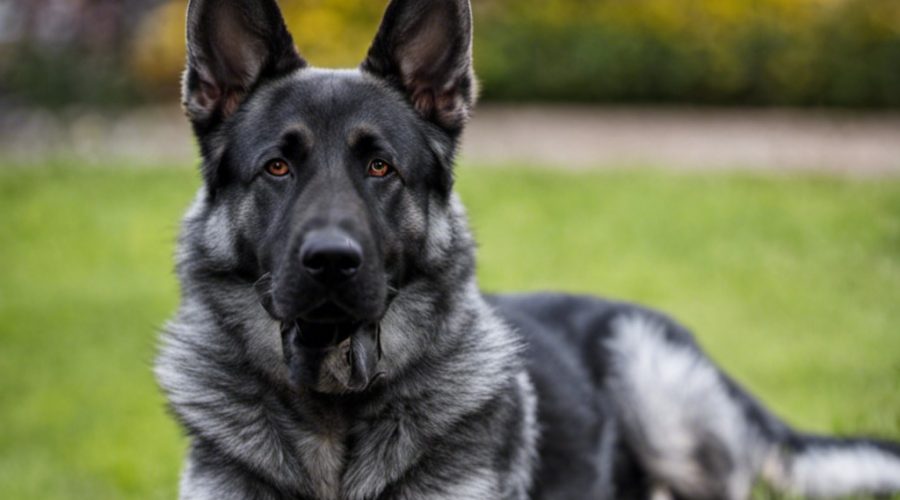


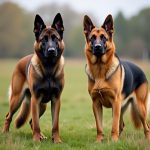


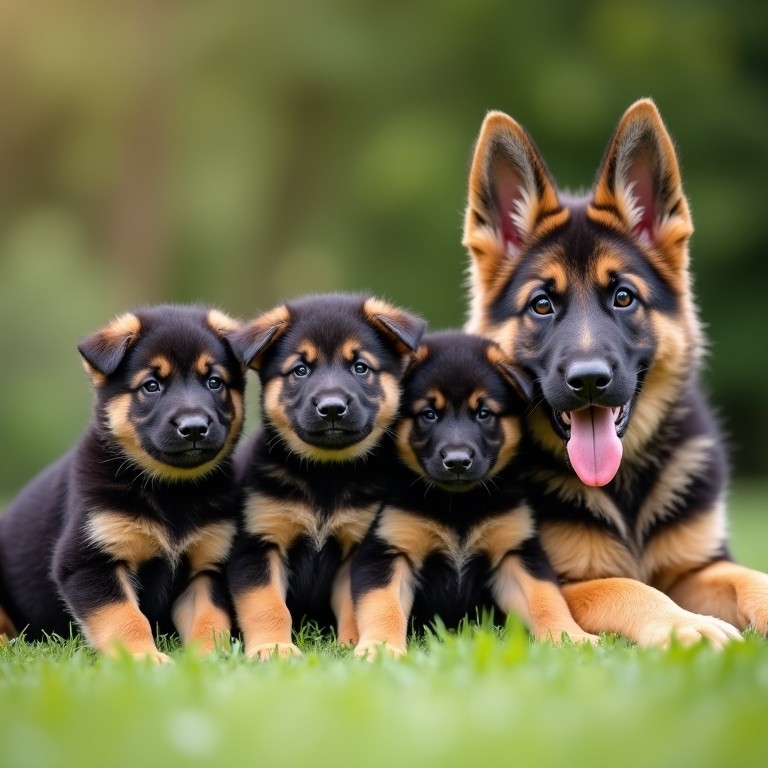
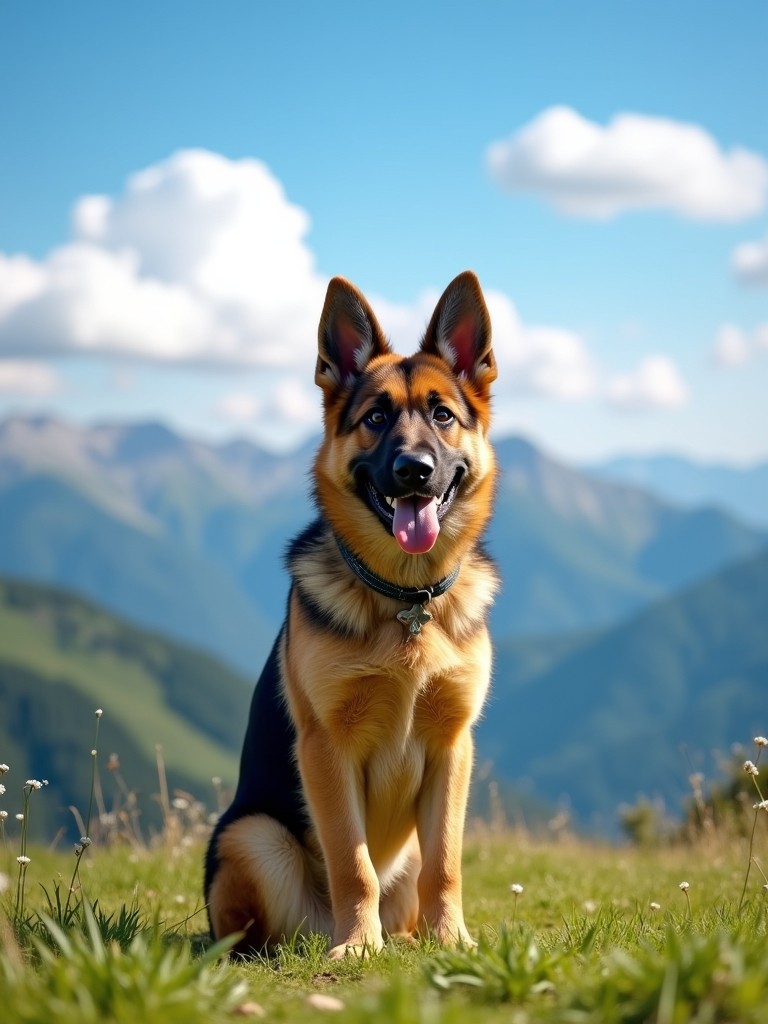
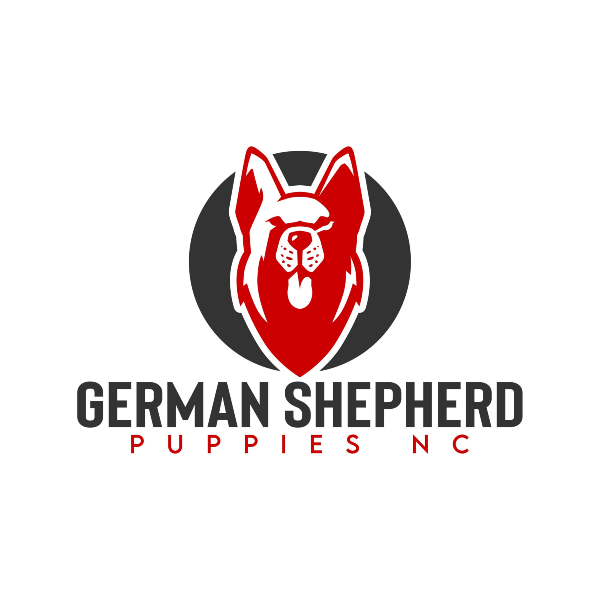


Our Social Media Channels